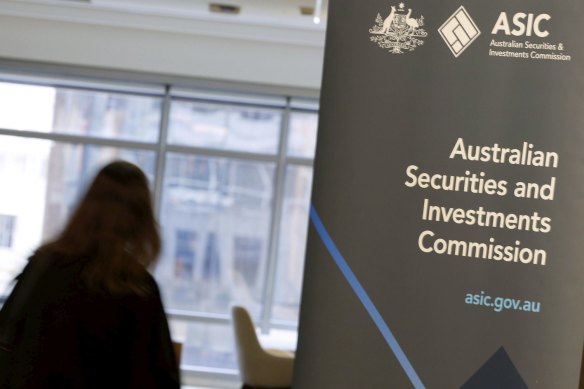Two Minneapolis Startups Net $100K from Equity Accelerator
Two Minneapolis-based companies are among a handful of startups selected to receive funding through a new equity-focused accelerator program.
Madison, Wisconsin-based startup group gener8tor last week announced the five companies participating in the 2024 iteration of the MSP Equity Accelerator, which first launched last fall.
gener8tor is running the program, and Allianz Life Insurance Co. of North America is sponsoring it through its venture arm.
The two Minneapolis startups participating this year are: sports organizing platform Gametime Hero and contactless patient monitoring company Ambient Intelligence. They’ll each receive $100,000. The MSP Equity Accelerator invests in Black, brown, and women-owned startups and connects founders with individualized coaching and a network of mentors and investors. The program will distribute $500,000 in total.

Cohort members receive a $100,000 investment in return for 7.5% equity in their companies, according to the program’s website.
Gametime Hero CEO Brittany Bell and her cofounder and husband AR Bell both enjoy participating in sports, but they recognized the need for a central platform where official and community sports organizers could list events for people to join.
“The technology that exists for adult recreational activities is pretty abysmal,” CEO Bell said in an interview. A former software engineer at Google, AR Bell handles the development side of Gametime Hero as chief technology officer. Both he and his wife are first-time entrepreneurs.
Beginners hoping to dive into a popular activity like pickleball might be hesitant to join an already active group, but Gametime Hero could connect users with a suitable group, Bell said.
“It’s hard for new people to move to the Twin Cities because everybody has their friends that they’ve grown up with,” and most are not looking to expand their circles, Bell said.
Gametime Hero aims to connect adults of all ages to sports and recreation that matches their skill levels by providing organizers with a free platform to list clubs and events. Organizations, clinics, and informal organizers are all welcome to list an event for anyone to join, Bell said.
“We don’t want to make this a cost prohibitive thing, for people to stay active and healthy,” Bell said.
The company’s offerings aren’t unlike fellow homegrown sports tech startup SportsEngine, though that one caters to youth athletes.
Funding slowdown
The MSP Equity Accelerator is aimed at improving business success for underrepresented funders. Venture capital funding is, of course, declining across the board after a surge in recent years. But women and founders of color tend to fare even worse: Companies founded by women saw only 2.1% of investments in venture-backed startups in the United States last year, while those with women cofounders got just 14.8%. In Minnesota, companies with only women founders saw 10% of the almost $2.7 billion invested in 2023, according to investment tracker Pitchbook.
Less than 0.5% of all venture funding for startups in the United States last year went to Black-founded startups, according to Crunchbase.
Bell said seeing statistics like that can be disheartening, but she is competitive and committed to proving why it’s worth investing in minority founders like herself and her cofounder.
Not having the generational wealth or family knowledge of starting a business makes a big difference, Bell said. One investor told her no one would invest in the company unless she had an accredited investor in her family willing to put forward thousands of dollars, she said.
“I’m sure my grandma would have given me $10,000, whatever it might be, but she’s not a qualified investor because she doesn’t have the income that qualifies her,” Bell said.
She added: “When you don’t grow up in the world [of entrepreneurs], you don’t know about it. You don’t know about the opportunities, you don’t know about the people and the networks.”
The $100,000 investment from the MSP Equity Accelerator is Gametime Hero’s first large funding opportunity, a step up from the crowdfunding that gave it a push to start. Bell said the money will help “leaps and bounds” for sales and marketing.
The app operates in Twin Cities and Seattle, where the pair lived for eight years. The goal is to eventually expand across the United States and possibly internationally, Bell said.
Gametime Hero released its beta version last fall and will officially launch in July, with a launch party at Minneapolis Cider Company on July 29 from 4-6 p.m.
A rare opportunity
Brian Johnson, founder and CEO of fellow cohort member Ambient Intelligence, said he was approached by the MSP Equity Accelerator to apply. The opportunities presented by Allianz Life were a big draw for his business, he said.
Johnson’s company is working to create a contactless patient monitoring device that sends radio waves 20 times a second and could be placed in any room. It is intended to alert assisted living facilities if a resident has fallen down, removing the human error of eyewitness or self-reporting for health incidents. He hopes to have the technology through the commercialization process within six months.
He said that the device preserves privacy by removing the need for cameras and allows the aging population to maintain their independence without having to keep a wearable alert device on their person,

He considers the accelerator program a “collaborative opportunity” to better understand how the sensor data could be helpful to Allianz Life’s members.
Johnson is a graduate student in the medical device innovation program at the University of Minnesota, where the Earl E. Bakken Medical Devices Center is housed. Ambient Intelligence depends on the resources available at the center, including up to seven computers running simultaneously, a library of existing medical devices, and the 3D printer.
Meetings with mentors and coaches began in June for program participants. The program retreat in late July will offer more chances to speak with people in Allianz. Johnson said that’s a rare opportunity, as large companies generally don’t have the bandwidth or a way to connect with early-stage companies, Johnson.
“Looking towards the future is very compelling for us,” Johnson said. “The ability to reduce the cost of care, [unexpected injuries and deaths] – these are all things we know are possible.”
The money will go toward further developing and producing the component that will allow contactless monitoring. Each component costs the company $9-18 to make in-house, Johnson said. If Ambient Intelligence were to source the components from another company, there would be a large markup in cost.
Engineering a solution specifically for the aging population is “not an easy task,” Johnson said. “But that really allows us to reduce that cost, and that’s overlooked.”
At the end of the accelerator program, founders can pitch their companies to investors, local partners, and the public during Twin Cities Startup Week.
“This program not only supports their ambitious development plans but also brings new opportunities and showcases the potential for startups to thrive within Minnesota’s startup ecosystem,” said Megan Baniecke, the accelerator’s managing director.
Other startups in the 2024 cohort are CliniSpan Health, an AI-driven clinical trial diversity tool based in Durham, North Carolina.; Mili Llama, a college substitute teaching platform based in Colorado; and coffee alternative Sip Herbals from Gresham, Oregon



